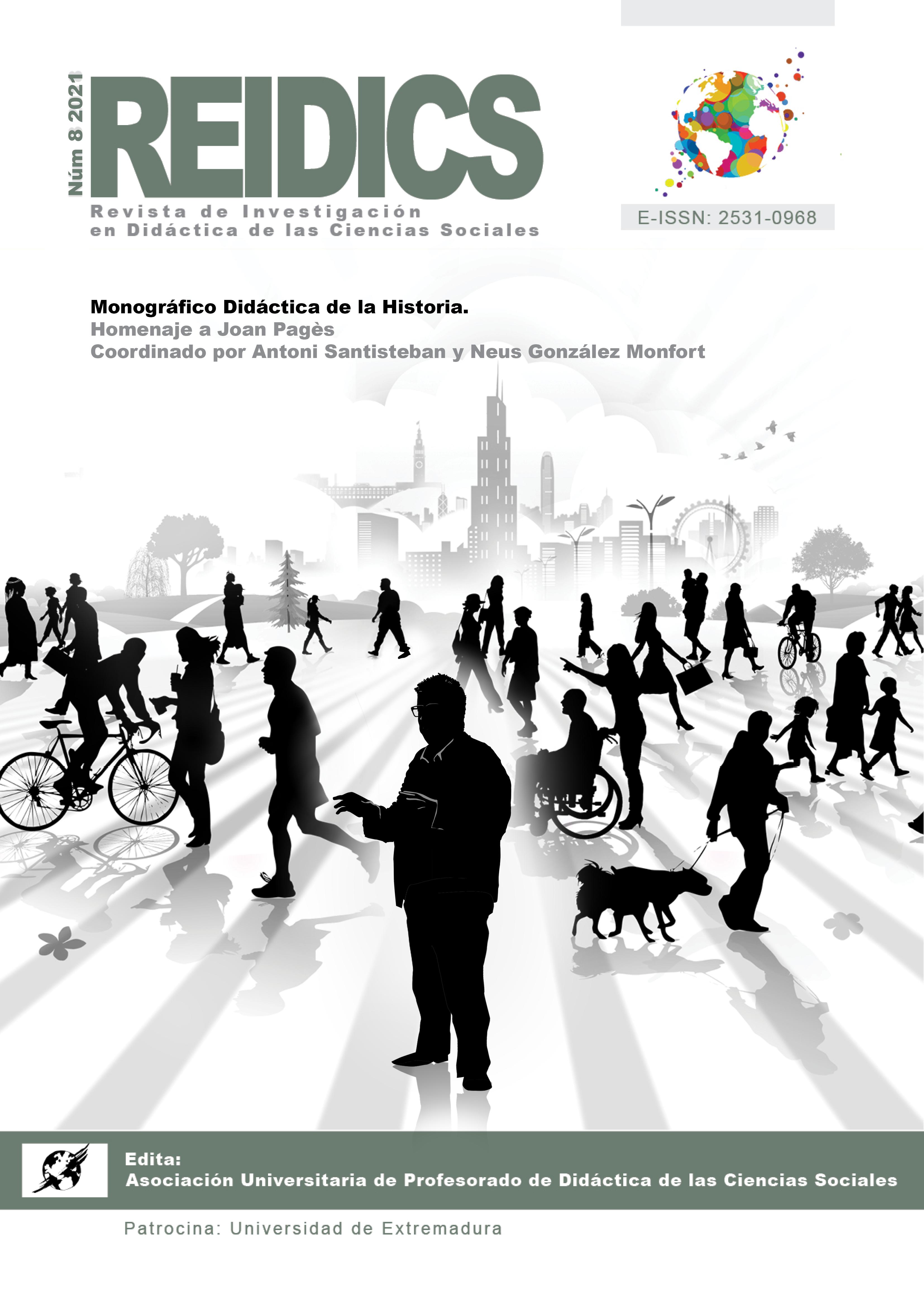Ideas of educational communities on democratic citizenship in the pandemic context in Chile: a view from the Joan Pagès’s contributions
DOI:
https://doi.org/10.17398/2531-0968.08.72Keywords:
democratic citizenship education, educational communities, participation, pandemic contextAbstract
The aim of this paper is to recognize and analyse the ideas of boys, girls, youth and families with respect to how to strengthen education for citizenship from the school and community space. This initiative is part of a research project that aims to develop a methodological model to strengthen the application of Law 20,911 that created the Citizen Training Plan in Chile. In this context, during the second semester of 2020, groups of conversations were developed with different members of the educational communities of the cities of Antofagasta and Coquimbo, in Chile. The groups, applied in a virtual way, were integrated for boys and girls from the first and second cycle of primary education, young people from secondary education and families. The conversation groups were based on three dimensions: 1) spaces for learning democratic participation in the school; 2) the city as a space for the exercise of citizenship; 3) contributions of the school to a society facing the challenges of a continue transforming world. The information produced was analysed from a qualitative-descriptive perspective, taking as a theoretical perspective some of Joan Pagès’s contributions regarding the role of the school in the construction of critical citizenship and social justice.
Downloads
Published
Issue
Section
License
Aquellos autores/as que tengan publicaciones con esta revista, aceptan los términos siguientes:
- Los autores/as conservarán sus derechos de autoría y garantizarán a la revista el derecho de primera publicación de su obra, el cual estará simultáneamente sujeto a la Licencia de reconocimiento de Creative Commons 4.0 BY-NC-SA que permite a terceros compartir la obra siempre que se indique su autor y su primera publicación en esta revista.
- Los autores/as podrán adoptar otros acuerdos de licencia no exclusiva de distribución de la versión de la obra publicada (p. ej.: depositarla en un archivo telemático institucional o publicarla en un volumen monográfico) siempre que se indique la publicación inicial en esta revista.
- Se permite y recomienda a los autores/as difundir su obra a través de Internet (p. ej.: en archivos telemáticos institucionales o en su página web) antes y durante el proceso de envío, lo cual puede producir intercambios interesantes y aumentar las citas de la obra publicada. (Véase El efecto del acceso abierto).
- Los autores y autoras han respetado la política de autoría de esta revista.




